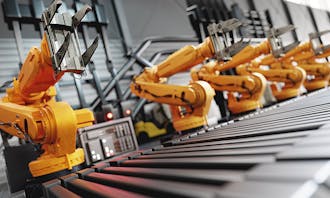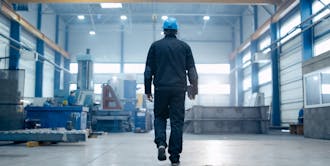HMI VS Kiosks: in the future no one will type anymore
2020-05-07
2 min read
Years ago, self-service kiosks were pure imagination. Today, grabbing products and paying without human interaction is an everyday activity. Now, companies like McDonald’s are going further and investing in voice-based technologies to speed up the customer’s experience even more.
In many shops, airports and other hospitality and retail businesses, people can easily avoid the receptionist or sales assistant. Self-service kiosks allow customers to simply type their request, tap their card and go. In 2018, the self-service market was valued at USD 24.06 billion and is expected to reach USD 58.41 billion by the end of 2024, predicting an annual growth rate of 16.43 per cent.
McDonald’s is already ahead of its competitors by implementing more sophisticated retail kiosks and complex artificial intelligence to its drive-thru service. The global fast food chain recently purchased Apprente, a start-up that specialises in voice-based and conversation technology. Like Siri and Alexa, customers will speak to an automated voice to take their order, helping the company to reduce long queues and serve more customers without spending more on resources.
Are kiosks used in manufacturing?
Kiosks are currently used exclusively in retail because they are designed to make customers’ experience easier and faster.
In manufacturing, self-service machines might appear useless because engineers have a wide variety of needs. Instead, engineers use human machine interface (HMI) systems with interactive touch screens that allow industrial operators and line supervisors to control various industrial processes in a plant environment. The dashboard provides feedback about performance, active functions, and other metrics to help engineers monitor productivity.

ATHENA is the future of HMI systems
In the manufacturing sector, HMIs are already very efficient and effective. However, the implementation of cutting-edge sensors like the ones McDonald’s is investing in, would make operators’ jobs easier. Instead of typing, engineers could ask questions without removing gloves, which sometimes slows down the production process because the touchscreen cannot register the user.
Start-up company, iTSpeeX is investing in voice technology to change how engineers interact with HMIs. ATHENA is the first universal, voice-operated assistant technology specifically designed for manufacturing.
“In developing ATHENA, iTSpeeX wanted to help manufacturers maintain our commitment to machinists,” explained Dan Bagley, chief architect at iTSpeeX. “ATHENA is representative of the kind of innovation our industry needs to attract a new generation of machinists and push manufacturing into a bright future.”
ATHENA will enable operators to interact with machine tools using simple voice commands. The technology also has built-in capabilities to control the machine, request status reports, calculate key measurements, and coach operators on a broad range of processes and activities. Engineers can use this information to improve productivity, monitor machine condition and plan maintenance as soon as issues are detected by the interface.
Thanks to voice recognition systems like ATHENA, using HMI machines could be as easy as buying a cheeseburger at McDonald’s. Investing in voice-based technologies could improve how engineers interact with HMI machines, making an engineer’s work easier, faster and more efficient.



